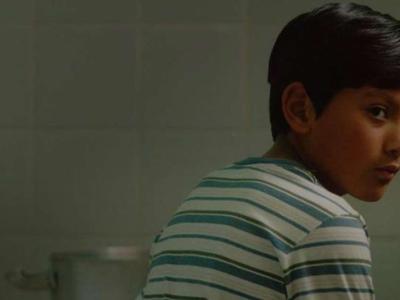I came across Ceshia Ubau when, one day in Nicaragua, my cousin put on one of her songs at a party she was throwing. "Listen to this," she said with certainty. “You’ll like it.” Word has spread in this Central American country that I call home, about the beautiful voice and spirit of a young singer-songwriter from Managua.
Just like my auntie predicted, Ceshia’s song Las Mujeres de Mi Tierra took me back to the women of my upbringing - my great grandmother, my grandmother, my aunts and my mum. Paying tribute to her own grandmother, it is a love letter to Nicaraguan women but also to the strength of women worldwide. This song connects us with our maternal upbringing.
I immediately wanted to interview Ceshia. I messaged her on instagram, and soon we were chatting over Zoom, me from my favourite place in Nicaragua - Casa Marimba, a charming eco-lodge, bed & breakfast situated along the shores of Laguna de Apoyo - and Ceshia from her house in Costa Rica. From the moment I started talking to her, it felt as if I had known her for years.
As a toddler, she told me, Ceshia spent hours imitating 90s Latin pop idols like Thalia, Julieta Venegas, Paulina Rubio and Shakira. “I was very lonely as a child and I used to love pretending to be a singer and putting on private concerts for my stuffed animals. I think that sparked my imagination and opened the door to writing,” she recalls fondly. "I organized my room like a stage and even created a small platform to perform on."
Ceshia’s parents enrolled her in piano lessons and, as she advanced, her passion for music deepened, and she began exploring various genres, from classical to contemporary, discovering the intricacies of jazz while blending the folkloric traditions of Nicaragua and Central America with modern sounds.
At 17, she wrote her first songs, filling diaries with lyrics. Inspired by Nicaraguan singer-songwriters Salvador and Katia Cardenal and Elsa Basil, who is a Nicaraguan singer-songwriter, painter and illustrator. Music became a constant companion in Ceshia’s life. She studied psychology at Universidad CentroAmericana (UCA) and took singing lessons with Nicaraguan singer-songwriter and producer Juan Solarzano, who played a key role in shaping her early musical education. Among other influential teachers were Cuban musician Alberto San Jose and Nicaraguan musician Ramai Das.
Despite her deep love for music, Ceshia initially pursued psychology. ‘’I’ve always been close to music, but something about psychology made me feel it would be useful in the future’’ she says. Today, psychology forms the theoretical foundation of her songwriting. In addition to being a singer-songwriter, Ceshia is a psychologist with a master’s degree in treating sexual abuse victims. Music is therapy, says Ceshia, and in a country with such a violent past and present, it’s clear that for her, it is almost a duty to harness the healing power of sound and words, if you are blessed with that power.
In 2017, at age 19, Ceshia made her first trip to Costa Rica, a two-week journey filled with concerts that marked the start of her professional career. A year later, in 2018, she felt she had no choice but to stay in Costa Rica due to the socio-political situation in Nicaragua.“In Costa Rica I felt safer and freer to develop as an artist.” she says. She participated in a festival in Brazil and recorded her song Mayahuabá in Guatemala, collaborating with figures such as Iker Gasteaminza and Rodolfo Castillo.
“Many Costa Rican performers welcomed me with open arms, offering opportunities, recommending me, and inviting me to join them on stage. This support network developed naturally, through word of mouth,” she reflects about her host community, who she also contributes to with workshops for abused women.
Following her 2017 debut album, Con Los Ojos Del Alma, in 2019, Ceshia embarked on her first European tour which she name “Habría que sembrar girasoles” (We Should Plant Sunflowers), which brought international acclaim, awards and accolades, solidifying her place in the Central American music scene. In 2021, she earned third place in an international songwriting competition with her song Mayahuabá, which delves into the experiences of Central American migrants.
In 2022, Ceshia started singing with Eddie Monge, a Nicaraguan from Jinotepe, Carazo, who has lived in Costa Rica for many years; Fiorella Hidalgo, a Costa Rican percussionist; and Javier Alvarado on bass. “They are a talented and diverse ensemble that embodies the cultural and musical richness of the region,” she confidently affirms.
With the support of a grant from the Ibermusicas program Ceshia launched her second album Luz, produced by Rigoberto Alvarado and Brandon, with whom she shared a deep musical connection. “We studied together in school, learning harmony from the same teacher,” she recalls. Rigoberto, who studied in Puerto Rico and later at Berklee, proposed producing the album after a successful collaboration on Instagram Live.
Despite her rapid rise, Ceshia also confesses moments of self-doubt. “There have been times when I questioned if I was on the right path,” she admits. “But music brings me solace and I use it to navigate my struggles.” This introspective journey is evident in her lyrics, and their themes of self-discovery and healing.
Ceshia is also a strong advocate for gender equality in the music industry. “True equality goes beyond simply increasing the number of female artists in the music scene. It’s about the type of relationships we see in the industry,” she argues. “There’s still a lot of work to be done,” she says, though she remains optimistic about the future.
In 2023 Ubau was invited to her first TED Talk in Costa Rica, El Poder Sanador de la Música (The Healing Power of Music). And in 2024, her three new songs Melodia Sagrada, Marzo 2020, and Caminar, have been pre-selected for the 25th Annual Latin Grammy Awards to take place in November.
“We recorded Melodia Sagrada on my birthday.” she laughs. “The best present,being surrounded by friends,” she recalls. Melodia Sagrada narrates Ceshia’s personal experience as an immigrant in Costa Rica. During the creative process, she interacted with various migrant diasporas in Costa Rica, including Colombians, Venezuelans, and Cubans. The song also serves as a tribute to Colombia, especially the town of San Jacinto and Gaiteros de San Jacinto, who have had a significant influence on her music.
She crafted Melodia Sagrada in collaboration with the women’s percussion group Tocar el Tambor, led by Anyul Arevalo, and with the support of Javier Alvarado, who infused the song with traditional Colombian bullerengue rhythms, rooted in the folklore of the country’s Caribbean coast. These elements enriched the song's composition. “It has been a learning experience to turn music into inspirational stories,” she reflects.
Her song Marzo 2020 narrates the story of a long-distance love that ended during the pandemic, culminating in an emotional reunion. Ubau is also working on her upcoming EP EDÉN, featuring four songs, which is set to release in late September and is also planning a series of concerts across Central America.
“I strongly believe in the importance of embracing and connecting with our fellow Central and South Americans,” she says, having worked with Nicaraguan singer-songwriter Katia Cardenal, a Costa Rican band known for its contemporary compositions Malpaís and Nicaraguan singer-songwriter Luis Pastor González. Among others Ceshia says she'd love to work with are La Muchacha Isabel (Colombia’s most prominent voice of canción de protesta) Spanish singer-songwriter Rozalén and Marta Gómez, the Barcelona-based Colombian singer who, in the same vein as Ceshia, heals and unites with her music.
Ceshia’s journey is one of perseverance, passion, and purpose. As she continues to grow as an artist, she remains committed to using her platform to address important social issues, heal through her music, and inspire others. Her story is a testament to the power of art in effecting change and connecting people across borders. Through her voice, Ceshia is weaving together the experiences, hopes and dreams of an entire generation.















